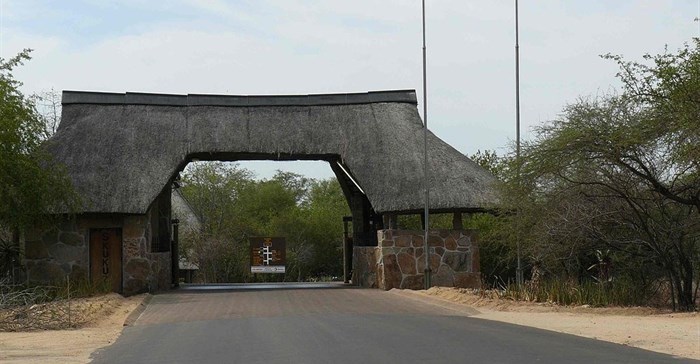Development of full-service lodge in Kruger National Park approved
The Department of Environmental Affairs approved of the proposed 240-bed Malelane Safari Lodge in the Kruger National Park (KNP) and South African National Parks (SANParks) has welcomed this approval. According to KNP managing executive Glenn Phillips, this approval comes after a comprehensive and detailed independent environmental scrutiny. "We are happy with the Environmental Impact Assessment (EIA) report and we are satisfied with the process which was followed from the beginning of the study to the end thereof."

Altaileopard via
Wikimedia Commons - Entrance of the Skukuza-Camp (Kruger National Park)
“All applicable environmental scrutiny has been applied independently and all EIAs are reflecting the ecological feasibility of the development. Its impact will definitely be far less than the sprawling towns of Skukuza and Satara… in fact it should be noted that the total development footprint in the Kruger National Park is still less than 4% making it a national park with the lowest development footprint in the world.”
The lodge is meant to operate at level higher than our ordinary camps in the park and will cater for those tourists who need to be served rather than our traditional self-catering service. According to Phillips, there is a demand from the emerging market for a product that provides a full service in addition to the safari experience of the park”. “KNP currently offers self-catering facilities throughout the park which are hugely popular but fall short in meeting the needs of the emerging market.
The proposed ‘hotel’ will be a full-service facility that will be constructed on the periphery of the park at the Malelane Gate Precinct. “This is in line with the peripheral development policy which allows for development on the periphery of the park rather than within the park where there will be a greater ecological impact. The geographical location of the facility will make it accessible for 24 hours and eliminate the undesirable risk associated with late arrivals and driving to the nearest camp.”
Phillips, said the 240-bed facility is not going to be a high-rise building in the mould of the general perception of a hotel with the “bells and whistles” of a city hotel but a development in line with the hall-mark SANParks environmental ambience that will complement its surroundings.”







































